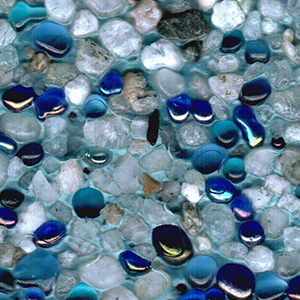When you think of a pool, what image immediately comes up in your mind? Chances are you are picturing a typical chlorine pool – aquamarine with a greenish tinge, stinging your eyes like liquid bleach. Chlorine in pools helps sanitize the pool water and prevents the development of bacteria, algae, and other nasty vermin. That said, there is an increasingly popular alternative to the chlorine pools we all know and (mostly) love: Saltwater pools.
Saltwater pools are when you add salt instead of chlorine to your pool water. However, they are not totally chlorine-free. Rather you add pool-grade salt into a chlorine generator which converts the salt to chlorine via electrolysis. Unlike the salty briny taste of the ocean, the taste of saltwater pools is mild and even enjoyable, with an almost silky sensation on your skin. That’s because saltwater pools have one-tenth of the ocean’s salinity – roughly the same salt as a teardrop. Talk about swimming in a pool of your own tears!
Contact us today for a beautiful backyard paradise!
With saltwater pools being much gentler than the sting of chlorine, many people have opted for a saltwater pool instead. However, as there is good and bad in most all things, thus it is so when it comes to chlorine and saltwater pools.
Pros & Cons of Saltwater and Chlorine Pools
Depending on your situation and personal preferences, you may wish to opt for a saltwater pool or simply stick to a traditional chlorine pool. A saltwater pool has tons of advantages, such as:
- Cost: Saltwater pools are cheaper when it comes to day-to-day operations. A bag of pool-grade salt for the entire summer winds up costing you $30 at the most on average compared to the much pricier chlorine.
- Gentler sensation: As stated before, the salt-turned-to-chlorine in saltwater pools tends to be much milder than in traditional chlorine pools.
- Better smell: With a saltwater pool, you can avoid smelling the chemical tang of chlorine pools, which bothers many people.
Chlorine pools, however, have their strong points in terms of:
- Cost of conversion: Converting to saltwater pools can cost you more than $1,000. Sometimes it’s better to leave it as-is.
- Cost of investment: Chlorine pools have way less initial investment costs than saltwater pools.
- Energy efficiency: Chlorine pools only require a pump to clean your pool, thereby using less electricity than your saltwater pool.
- Easy repair: Any problems in your pool equipment usually have a quick DIY solution. If not, then it’s easy as pie to find a pool company that can repair your pool (like us, JR Pool Plastering & Texas Gunite Ltd.!).
- Fixture-friendliness: If you are diehard about your pool additions and features, then sticking to a chlorine pool is your best bet.

We will work with you to bring the beautiful pool of your dreams.
Of course, there are disadvantages to both as well. With chlorine pools, you’ll have to put up with the harshness of chlorine on the eyes, skin, and bathing suit. They also need more maintenance and proper storage. Saltwater pools are much easier to maintain and clean, but the upfront investment costs can get steep quickly. You’d avoid, however, the tang of chlorine and the extra chemicals of chlorine pools.
Our Team Is Here For You
Whichever you prefer, JR Pool Plastering & Texas Gunite Ltd. specializes in all things pool repair. We can repair any part of your pool equipment. We can refinish your pool with high-quality plastering options and repair your tile and coping.
And of course, we offer extensive pool remodeling options, including pool rebar and pool additions. Call us today or visit one of our Greater Houston locations to get started!